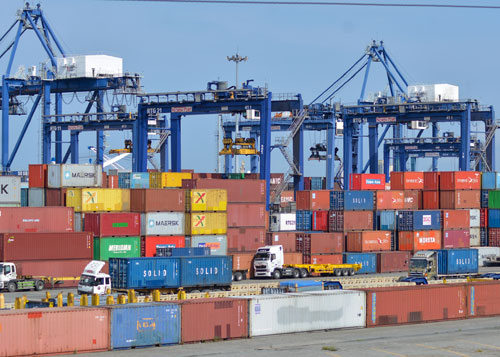The Marcos government is looking at different options available to the country to cushion the rising prices of oil amid calls to suspend the collection of excise tax on oil, Office of the Press Secretary officer-in-charge Cheloy Garafil said yesterday.
Garafil did not elaborate on the options being considered but said the rising prices of oil and the call of public utility vehicle (PUV) operators and drivers to suspend the collection of excise tax has been raised and discussed during yesterday’s Cabinet meeting.
“In the Cabinet meeting earlier, there had been discussions about the different options that are being considered and in time we will announce the specific plans and programs to address that issue,” she said.
The Federation of Jeepney Operators and Drivers Association of the Philippines (Fejodap) and the Pagkakaisang Samahan ng mga Tsuper at Operator Nationwide (Piston) called for the suspension of the taxes on oil for a few months, after the Organization of the Petroleum Exporting Countries (OPEC) announced that it is reducing its production by two million barrels per days which already resulted in the rise of prices.
There had been repeated calls for the suspension of the taxes on oil but the administration opted to keep the taxes and implemented measures to cushion the impact, such as providing fuel discounts to PUV drivers and operators, farmers and fishermen.
Meanwhile, President Ferdinand Marcos, Jr., according to a statement, said there had been “strong interests” from both local and international investors in the upcoming conduct of an on-site survey at the old Cadlao oil field in Palawan.
“The Government’s commitment to preserve and maintain the investment incentives for service contractors under Presidential Decree 87 has been met with renewed confidence and strong interest by local and foreign investors in the oil and gas sector,” the statement said.
Presidential Decree 87 refers to the Oil Exploration and Development Act of 1972 that was issued by then-President Ferdinand Marcos on December 31, 1972, to promote the discovery and development of the country’s indigenous petroleum resources.
The Department of Energy recently permitted Nido Petroleum Philippines Pty. Ltd., the technical operator of Service Contract (SC) 6B, to proceed with the site survey of its drilling locations in its contract areas by the last quarter of this year. Cadlao is an old oil field that produced over 11 million barrels in the early 1990s.
NIDO took over as the operator of SC6B in the Palawan basin in February 2022 and funds the 100 percent development costs, which include drilling, extended well testsand subsequent development of the oil field.
Marcos said conduct of the said activities in the old oil field will pave the way for the drilling of two wells — one exploration and one appraisal — by the first half of 2023.
He said the appraisal well could lead to early oil production towards the second half of 2023 while the recoverable volumes expected from the oil field are 5 to 6 million barrels of oil.
“While it is a first step, it signals the government’s intent to maximize indigenous resources and has attracted strong interest from foreign investors in the Philippine upstream oil and gas sector,” the statement added.
Garafil said the on-site survey and eventual revival of the drilling activities in the Cadiao oil field shows the commitment of the President and his administration to find locally sourced oil products and conduct oil exploration projects to increase the supply of affordable oil in the country.





